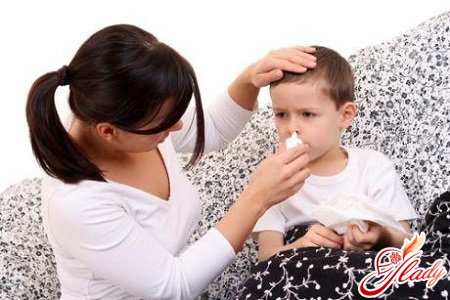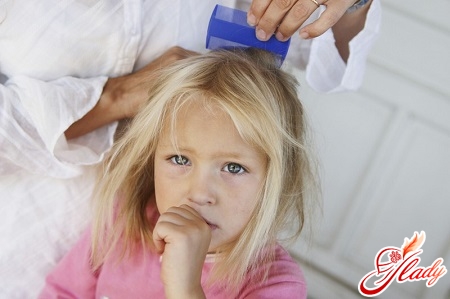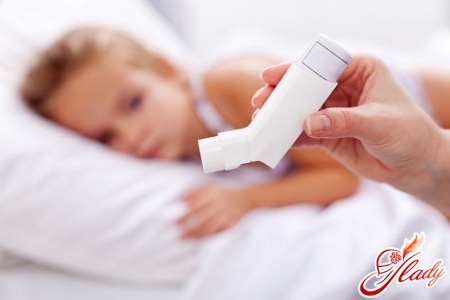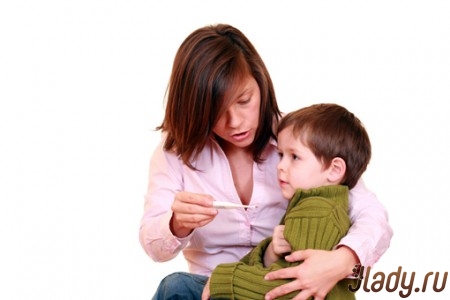 Are your teeth starting to come in?This is not a tragedy, but a natural process that no child can avoid. Sometimes baby teeth are difficult to cut: high temperature, pain, cough, runny nose, vomiting - all these symptoms can accompany the baby during the first year. But do not be alarmed in advance - it is not at all necessary that in your case everything will be so difficult! You can learn how to understand that your child is teething and what to do about it from this article.
Are your teeth starting to come in?This is not a tragedy, but a natural process that no child can avoid. Sometimes baby teeth are difficult to cut: high temperature, pain, cough, runny nose, vomiting - all these symptoms can accompany the baby during the first year. But do not be alarmed in advance - it is not at all necessary that in your case everything will be so difficult! You can learn how to understand that your child is teething and what to do about it from this article.
At what age do children have teeth?
The timing of teething varies for each baby.— the only thing that can be said for sure is that the first teeth - usually the upper ones - appear in a baby during the first year. Knowing at what age the first teeth start to cut, you can try to prepare for this in advance and prevent coughing, runny nose and other unpleasant consequences. The lower central incisors usually appear first, usually at six to nine months. Then the teeth appear in pairs. At the age of nine to twelve months, the upper central and lateral incisors appear. At the beginning of the second year, the first chewing teeth appear, they are also called "sixth", and from the twelfth to the twentieth month, the upper and lower canines cut through. You can calculate how many teeth a baby should have: take the age in months and subtract four. But remember that the timing of teething is individual for everyone: some children get their first tooth at three, while others get it at nine months, and both options are normal (at least as long as your pediatrician thinks so). By the time your child is three years old, he or she should already have twenty full-fledged baby teeth. Some mothers want to prepare in advance for teething and for such things as high fever, pain, cough, runny nose, vomiting. However, unfortunately, this is impossible, because both the timing and symptoms of teething are individual. It is quite possible that you will pass this cup by, and you will never know what a runny nose, cough, high fever and vomiting during the appearance of teeth are.
Symptoms of teething in babies
If you are a young mother, you are probably familiar withthis condition: the child is capricious, and you think: "Teeth. This time it's definitely teeth". However, such "teeth" can continue indefinitely during the first year of life (not just a few days, as written in some "good" books) and be accompanied by completely different symptoms. Unfortunately, this is in the order of things (and why didn't nature think of a more rational option than the baby's suffering?!) Every mother wants to know when exactly her children will get teeth. During teething, the behavior of each baby can be different. The most common symptom is that children become very restless, capricious (although it also happens that the child behaves as usual, not reacting to teeth, and in the morning you notice a white dot on the lower jaw). Another equally common symptom accompanying the appearance of teeth in children is a high temperature. This is a real problem for both parents and especially for the baby who cannot sleep even at night. Some mothers, unaware of the ailments that accompany teething, begin to suspect that their baby is sick, especially since a high temperature can be combined with symptoms such as a runny nose and cough. Do not worry, this is normal: during teething, the baby's immunity drops, and some pathogenic bacteria begin to work vigorously. This is why teething can be accompanied by a runny nose, vomiting, coughing and a general deterioration in health - this is normal. If you are going to vaccinate, then you should pay special attention to this issue. Many mothers note that different teeth cut differently. For example, the most painful (so much so that they even had to use a special ointment or gel) can be the upper or chewing teeth. The former are very wide, and the latter are located deep in the jaw - this explains the increased discomfort in the baby. It should be noted that the eruption of subsequent teeth will not necessarily be as difficult as the eruption of the first. Strong symptoms (such as fever) can usually persist in the child for several days. If this continues longer, it is better to consult a doctor in order to exclude other causes of the signs of poor health. But restless behavior, whims can last much longer - from the same notorious several days to several months (with short breaks, of course). Your child may need all your love and affection, so carry him in your arms, stroke him, kiss him, regularly breastfeed - all this will be indispensable support for your baby during this difficult period. Thus, when teething, the symptoms can be very diverse. This includes pain, fever, and anxiety of the baby. In order to ease the baby's suffering, parents need to know a few simple things: firstly, you need to understand that the process of teething in infants is normal and natural, and there is no need to be afraid of it, and secondly, there are many remedies (for example, a special gel) that can reduce the manifestation of unpleasant symptoms in an infant.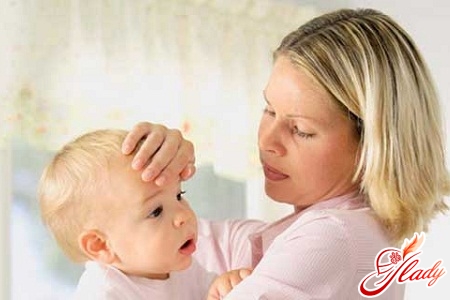
My baby is teething - how can I help?
The main thing is what mom should do — Thisокружить своего малыша любовью и лаской. Когда у детей режется первый зуб, они обычно начинают все грызть и кусать, даже свой кулачок. Поэтому совершенно необходимо, чтобы игрушки, которые ребенок грызет, были чистыми. Содержите свой дом в порядке, ежедневно делайте влажную уборку, и никаких кишечных инфекций у ребенка не будет. Признаки режущихся зубов проявляются практически сразу, и определить начало этого процесса не составит особого труда. Поэтому обязательно приобретите специальные массажеры-прорезыватели — это облегчит прорезывание зубов у ребенка. Они существуют специально для ускорения и облегчения роста зубов. Массажеры или прорезыватели представляют собой прекрасное средство стимуляции десен. Такие игрушки пружинят и массируют десны ребенку в то время, когда он их грызет. Они сделаны из особого материала в виде различных игрушек: это могут быть уточки, колечки, бабочки, у которых внутри вода или специальный гель. Если охладить прорезыватель, то гель немного застывает, и его эффективность в качестве антиболевой игрушки заметно повышается. Зная, во сколько месяцев режутся зубы, вы сможете купить эти полезные приспособления заранее. Массажеры могут быть также и поющими и мигающими, для того, чтобы отвлекать ребенка. Но, если ваш малыш очень беспокоен и капризничает, то от таких игрушек лучше отказаться. Когда у малыша режутся зубки, каждая мать стремится узнать, чем ему можно помочь. Как вы уже поняли существуют специальные игрушки и прорезыватели, однако помимо них вы можете использовать и различные медикаментозные средства: специальный гель, жаропонижающие. Например, если у ребенка поднялась температура выше тридцати восьми с половиной градусов, вы можете использовать жаропонижающую свечку (обязательно проконсультируйтесь с лечащим врачом перед этим). Многие мамы хотят узнать, что же это за волшебный гель, которым можно мазать десны и который облегчает прорезывание зубов. Как правило, в его состав входят природные антисептики (такие, как ромашка) и анальгезирующие вещества, благодаря чему этот гель и обладает успокаивающим действием. Существует заблуждение, что гель помогает прорезыванию, размягчая десну, но это не так — он лишь устраняет неприятные признаки. Многие мамы боятся того, что гель может быть вреден для ребенка. Это не так, но лучше им не злоупотреблять и использовать лишь в случае сильной необходимости (а не в качестве профилактики) — порцию анальгетика едва ли можно назвать полезной. В качестве примера можно привести такой гель, как «Холисал», а также «Камистад», «Калгель» и другие — о подходящем именно для вас препарате лучше опять же узнать у педиатра. Из-за таких симптомов, как температура и насморк, многие мамы волнуются — а можно ли делать прививку, особенно если она идет по графику. Хороший вопрос, и определить, разрешено ли вам делать прививку, может лишь ваш лечащий врач. Как правило, в каждом случае все индивидуально: если ребенок хорошо себя чувствует (за исключением легкого беспокойства), то почему бы ему не сделать запланированную прививку? А вот если нет, у него температура, насморк или, не дай бог, рвота, то прививку очень часто откладывают до снижения выраженности симптомов. Это связано с тем, что дети и так плохо переносят прививку (особенно, такую тяжелую, как АКДС), и ее совмещение с прорезыванием зубов может быть очень неприятным для детей. Симптомы прорезывания зубов следует наблюдать с повышенной внимательностью. Вам будет интересно узнать, что много молочного и сахара в рационе маленького ребенка может поспособствовать возникновению кариеса. Десны у малыша рыхлые, и это значит, что там собираются бактерии. Учитывая то, во сколько месяцев режутся зубы, вы должны продумать правильный уход за полостью рта на весь период появления молодых зубок.
Dental Care: First Steps
Many mothers make the mistake of thinking thatMilk teeth are not permanent teeth, which means they do not need care. This is not true: considering how many months teeth are cut and when permanent teeth appear, we can conclude that we will have to live with milk teeth for a long time. And the health of future permanent teeth depends on their health. Therefore, milk teeth need to be especially well looked after, and if this is not done, the child can catch an infection that causes diseases such as otitis or flu. The enamel on milk teeth is very soft and susceptible to caries, so they need to be brushed with special care and thoroughness, trying not to damage them. In order to brush your child's teeth, you should have a special fingertip with pimples. You cannot use toothpaste until the child is two - two and a half years old, because the baby can eat it. You can massage the gums well with a fingertip and remove plaque, but very carefully. You can dislocate the roots of the teeth or damage them if you press too hard, because the roots of a small child are not yet formed. You should definitely visit a dentist, but only when the child is six months old. It is necessary for the doctor to assess the condition of the frenulum of the tongue, the upper and lower lips of the child, and check the structure of the maxillofacial apparatus. It is necessary to eliminate defects in time, if any, because the health of the future molars depends on this. This can be damage to the frenulum, which affects the position of the teeth when they are cut, and the child's speech. In addition, this complicates the sucking process. Carefully follow all the recommendations that the pediatrician and dentist give you, and then your baby teeth and future molars will be healthy. We hope that in our article you found everything you wanted to know about teething in babies. Remember that this information can only be a means of education and reassurance, but not a guide to action and instructions for treatment. We repeat once again that with all questions, such as the desire to get vaccinated or the desire to cure a runny nose, it is better for you to contact your pediatrician, because only a doctor has sufficient qualifications to resolve them. Do not self-medicate, and you will definitely have a healthy and beautiful baby! We recommend reading:





